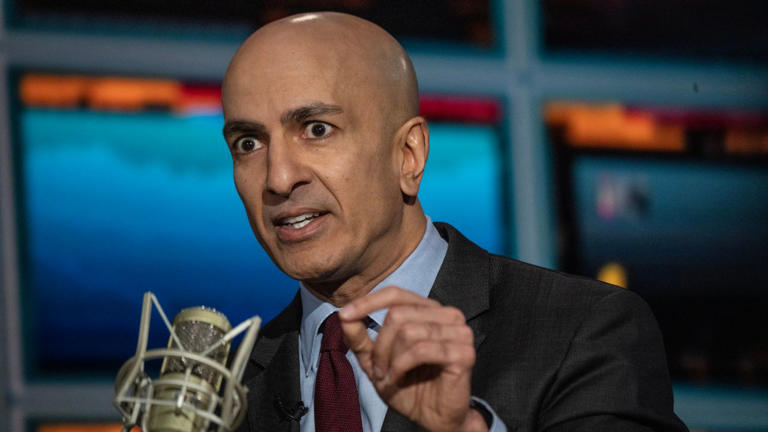Neel Kashkari, the president of the Federal Reserve Bank of Minneapolis, recently shared a profound insight into consumer sentiment regarding inflation and recession. According to Kashkari, consumers harbor a deep aversion to high inflation, sometimes even preferring a recession over enduring the pain of soaring prices.
In a recent interview on the Financial Times podcast “The Economics Show with Soumaya Keynes,” Kashkari emphasized the visceral disdain people have for high inflation. Drawing from his experiences participating in roundtable discussions with labor groups and workers in his region, Kashkari recalled a striking comment from a labor leader representing low-income service workers. This leader asserted that inflation is even worse than a recession—a sentiment contrary to conventional economic wisdom.
Kashkari elaborated on the labor leader’s perspective, explaining that while recessions may result in job losses, individuals can often rely on support networks of friends and family to navigate through tough times. However, high inflation impacts everyone, leaving no one within these networks untouched. This realization led Kashkari and his team at the Minneapolis Fed to engage in extensive debates, recognizing the profound implications of the labor leader’s insight.
The current economic landscape in the U.S. presents a paradox: despite a robust economy and a strong labor market, many individuals remain deeply dissatisfied due to the persistently high inflation they have experienced. Kashkari believes that this dissatisfaction stems from the adverse effects of inflation on consumers’ purchasing power and overall economic well-being.
Kashkari’s reflections shed light on the complex interplay between economic indicators, consumer sentiment, and policy decisions. His insights underscore the importance of considering the human element in economic analyses and policymaking, acknowledging that people’s lived experiences often diverge from conventional economic theories.
As policymakers navigate the challenges posed by inflation and strive to promote economic stability and well-being, Kashkari’s perspective serves as a valuable reminder of the multifaceted nature of economic decision-making and the need to prioritize the concerns and experiences of ordinary individuals.
In conclusion, Kashkari’s observations highlight the profound impact of inflation on consumer well-being and the broader economy. Understanding and addressing these concerns is essential for policymakers seeking to promote economic stability and improve the lives of individuals and families across the country.
